Six things we learned from season two of the Movistar Netflix documentary series
'The Least Expected Day' season two gives us a human look inside the peloton. And yes, it does once again feature cycling's answer to Roy Keane, Pablo Lastras
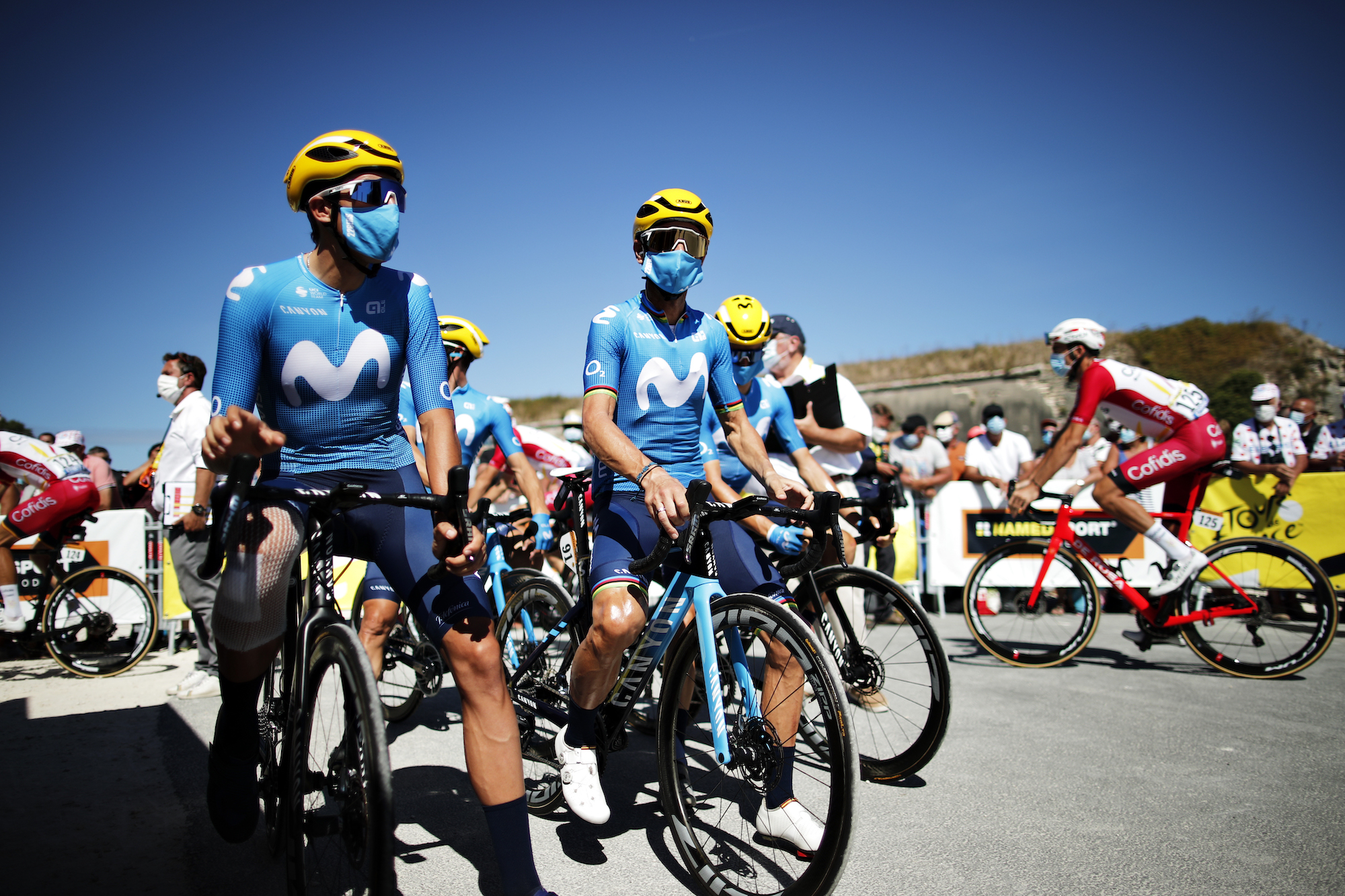
The latest race content, interviews, features, reviews and expert buying guides, direct to your inbox!
You are now subscribed
Your newsletter sign-up was successful
While Movistar’s second instalment of the ‘The Least Expected Day’ lacked the dramatics of three of their best riders jumping ship, it more than made up for that with a warts and all showcase of what life is really like inside a WorldTour team.
Especially to the non-Spanish-speaking world, it’s often hard to get a real feel for riders and teams who if ever interviewed in English are kept to a few words before and after a race.
Some will think why on Earth have Movistar let the cameras inside to film the sometimes shambolic running of a multi-million-euro-funded cycling outfit, but by the end of the six episodes you grow to love both the prima donna riders who beforehand it was sometimes hard to get a read on, as well as the supporting cast of sports directors who are - to borrow a phrase that's unlikely to translate into Spanish - mad as a box of frogs.
In between the beautiful drone shots here's what we learned from the second offering of cycling's answer to Keeping Up With The Kardashians.
Movistar defend their obsession with Tour de France team classification
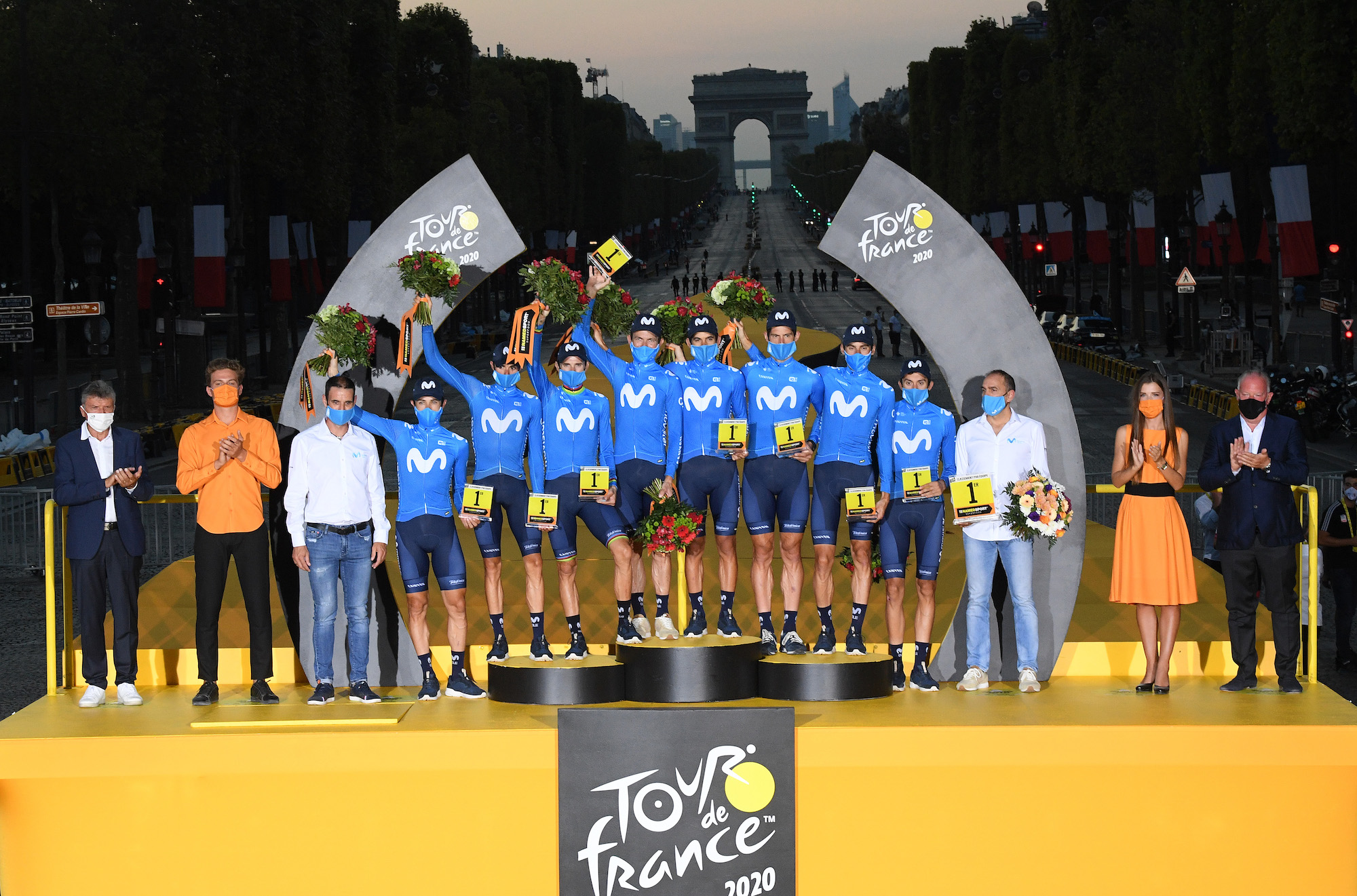
Movistar's relentless winning of the team classification at the Tour de France is beyond parody at this point, having won five of the last six, but to the Spanish squad it's anything but a joke.
“I don’t know why, but we’ve [the cycling public] got used to not caring. I’m not going to keep trying to convince people, of course. It’s unfair, I know it’s unfair, because they don’t know how much these eight suffered for it. They don’t realise," Unzue says of his team's focus on the prize.
And then José Joaquín Rojas goes full Cavendish: “And people think, ‘they want to win by team, excuse me?’ There are those who have gone their entire sporting careers, star cyclists, without ever making it to the Tour de France podium. It’s the peak of your career, the best place, the absolute top, that’s what it feels like.”
The latest race content, interviews, features, reviews and expert buying guides, direct to your inbox!
Well, that's us told.
Enric Mas’ crisis of confidence
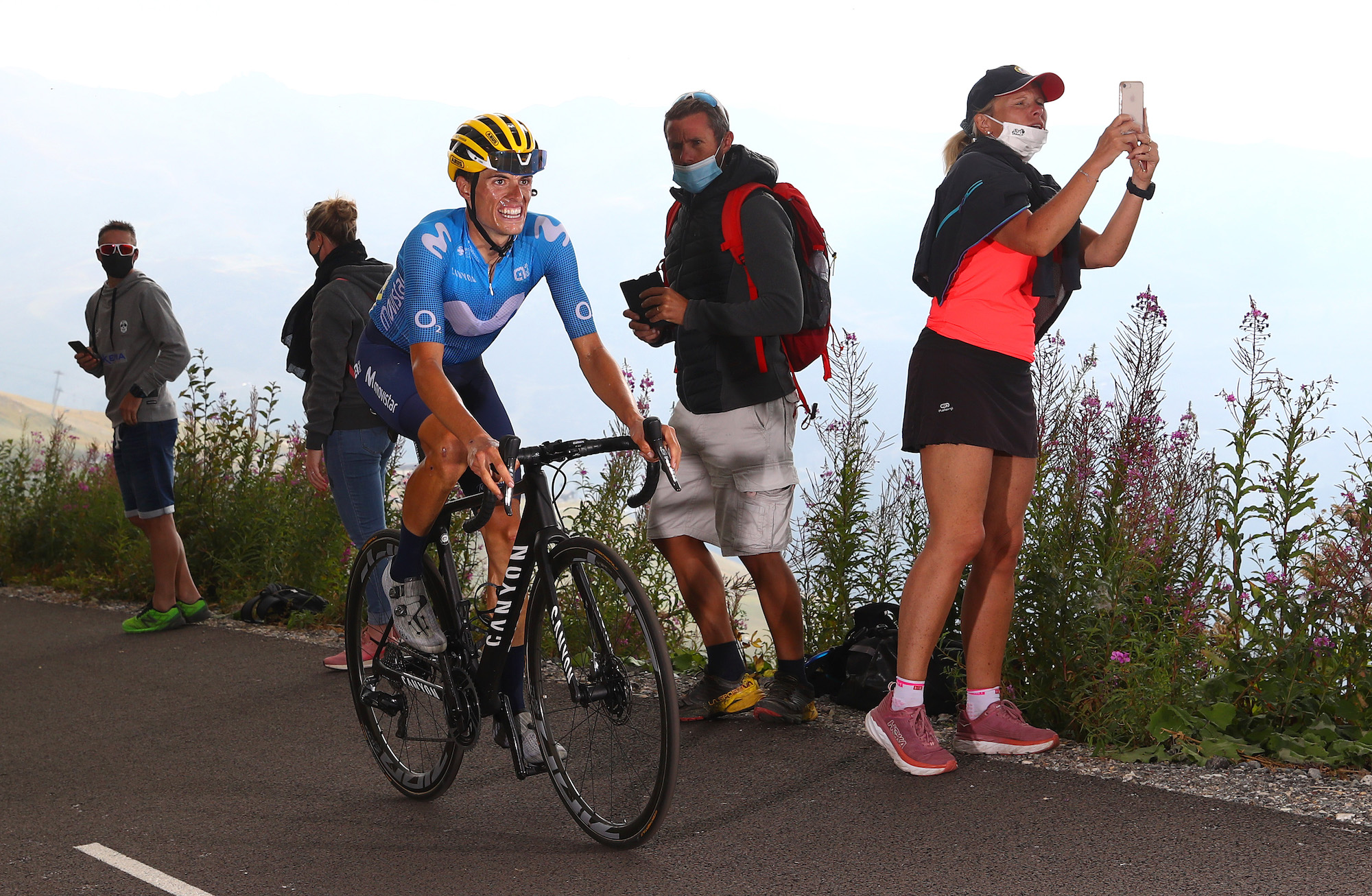
Enric Mas comes across as a genuinely decent person throughout the six episodes, which is all well and good, but he's also supposed to be a ruthless bike racer competing for the top titles on offer within the sport.
The now-26-year-old does manage to make the top five in both the Tour de France and Vuelta a España, while still at the point in his career where he qualifies for the white jersey competition, but his biggest sticking point seems to be his head rather than his legs.
"The results still don’t seem real to me...I don’t know if they will," he says during the Tour.
"Leading the team [at that point Deceuninck - Quick-Step before his transfer to Movistar] at the Tour is like living the dream. Last year, at the moment of truth, I was broken. I was fourth in the GC, I was mentally and physically broken. I pressured myself much more than I should have because I’m very tough on myself," Mas said, reflecting on the 2019 French Grand Tour, when he was fourth overall before struggling on the Tourmalet stage and losing ground.
The next year Mas impressed on the Col de la Loze stage, finishing sixth.
“The biggest stage of this Tour and seeing him there among the best helped us believe that the faith we had put in him was justified," Unzue said.
“My problem was thinking about winning the Tour and seeing how Roglič and Pogačar were ahead," Mas adds about how he struggled mentally during the Tour under the weight of expectation as Spain's great hope.
The issue also seems to stem from Alejandro Valverde's presence, Mas saying no 25-year-old can come in and replace the veteran, while Bala suggests his being there relaxes the younger rider and helps take the pressure of Mas being the leader of the team.
After the Angliru stage, Mas is emotional after not winning, apologising to the team, but you see the flicker of something great when he captures fifth at the Tour and walks over to Unzue's car to tell his boss how good a rider he is - let's hope we see more of the latter in the years to come.
Marc Soler reprises bad boy role
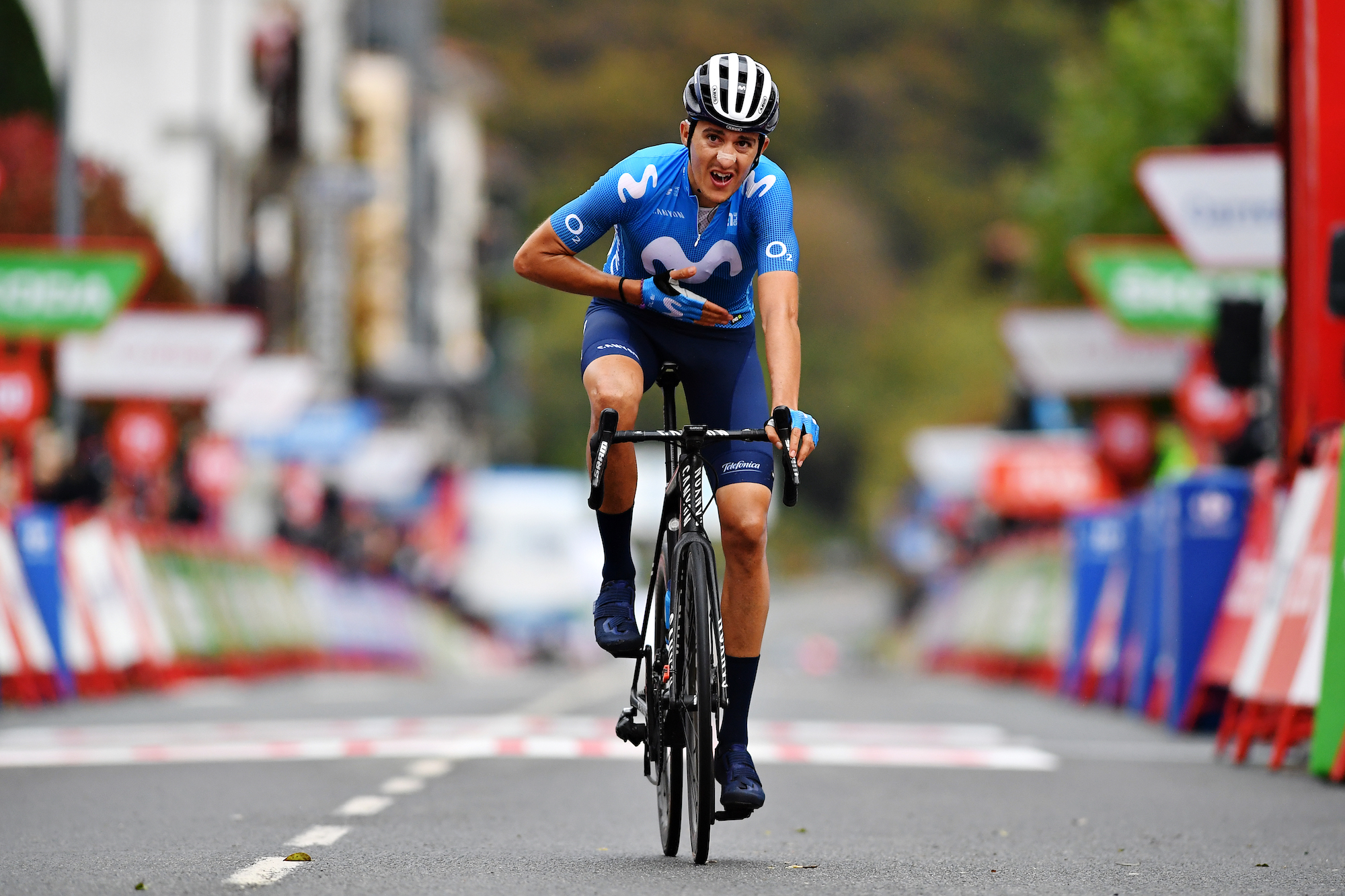
Marc Soler is a rider purpose-built for this Netflix series as the 27-year-old is rarely able or willing to hide exactly how he is feeling at any given point in time.
2020 was supposed to be the year Soler was finally given his chance to show what he can do, as leader of the Giro d'Italia squad, but after a little something called the coronavirus pandemic his plans are changed, and one week before the start of the Tour de France he's told he'll be on the start line in Nice.
"We took the year’s goal away from Marc, it was possibly the wrong decision," says Movistar's head of performance Patxi Vila.
"He’s a rough diamond we have to polish. And as for my part, I hold my hands up and apologise."
Soler's petulance reveals a naivety that is unwarranted for a rider who's already ridden in the WorldTour for six years, one scene shown where he threatens to climb off and the sports directors forced to try and sticky bottle him to the finish until they get caught by the commissaires.
Then, in the Vuelta when he suffers a flat tyre and says he wasn't sure what he could demand of his team-mates over radio, the mood turns to exasperation.
"Marc, please, you can't doubt things," says Rojas of Soler's need to trust that even if he doesn't know what to do, his more experienced team-mates will.
“He’s still young and needs to believe in himself, I think that isn’t always clear," says Vila.
"Marc has the role of leader, and sometimes he is, but he isn’t. As the leader, you have responsibilities, and have to make demands," adds Carlos Verona, who often finds himself bearing the brunt of Soler's indiscretions, and for the patience he displays deserves canonisation by Vatican tribunal (if I raced in the same team as Soler, there would only be one deceased cyclist such is his ill-temper).
“Be patient with Marc," Verona is told.
“He called me a d**khead and everything," comes Verona's protestations after one particular incident.
“You know what he’s like, ignore it."
Rojas explains that when things don't go Soler's way, he disconnects, but Unzue is prepared to persist and believes his investment will one day come good: “He’s struggling but I think one day he can make the major Tours a goal of his."
Movistar repeat denials they chased down Richard Carapaz to stop him winning the Vuelta
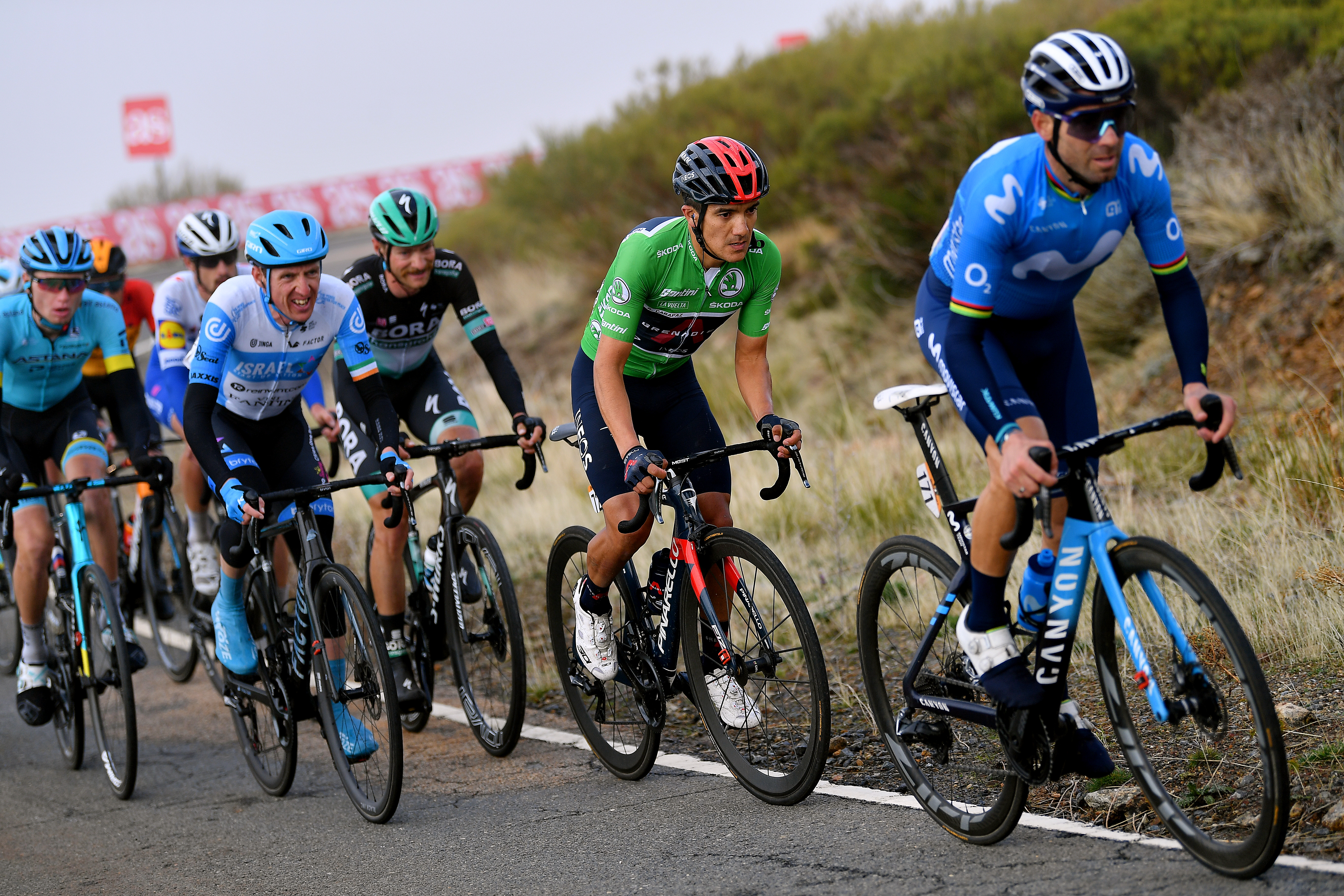
On the final GC day at the Vuelta on stage 17, Richard Carapaz attacks and looks to have a chance of robbing Primož Roglič of his second Grand Tour win in quick succession. But that's before Marc Soler starts riding hard for Enric Mas, who is trying to overhaul Dan Martin, the Irishman struggling behind to hold on to his fourth place overall, the side-effect being he gives Roglič a tow back up the road to his rival helping to secure the Slovenian's red jersey.
"We look like absolute arseholes. Embarrassing," comes the withering assessment from inside the team car, who had apparently been experiencing technical difficulties and weren't aware of what was going on, instead listening intently to the television commentators to try and get a grasp on the situation.
Of course, Movistar were well within their right to race, but the scene they created was ripe for the picking, especially given that Carapaz's departure from the Spanish squad wasn't exactly friendly - his agent and Unzue having fallen out.
At this point in the series, the Movistar PR vehicle whirrs into action to use the Netflix cameramen to their advantage - explaining what happened.
"The team has nothing to settle with Richard, nothing," Pablo Lastras says, the wasp-eating sports director seemingly muzzled for the most part of this series compared to his prior combativeness which set the first series alight.
"This is stupid, it deserves to be questioned but…" José Luis Arrieta starts in the team car, before trailing off.
"I think it’s outrageous to implicate Movistar in Carapaz not winning the Vuelta," comes the definitive line. Of course, it wouldn't be a Movistar Netflix series without at least a slither of plot and intrigue.
Instead of farce, Movistar reflect cycling's human side
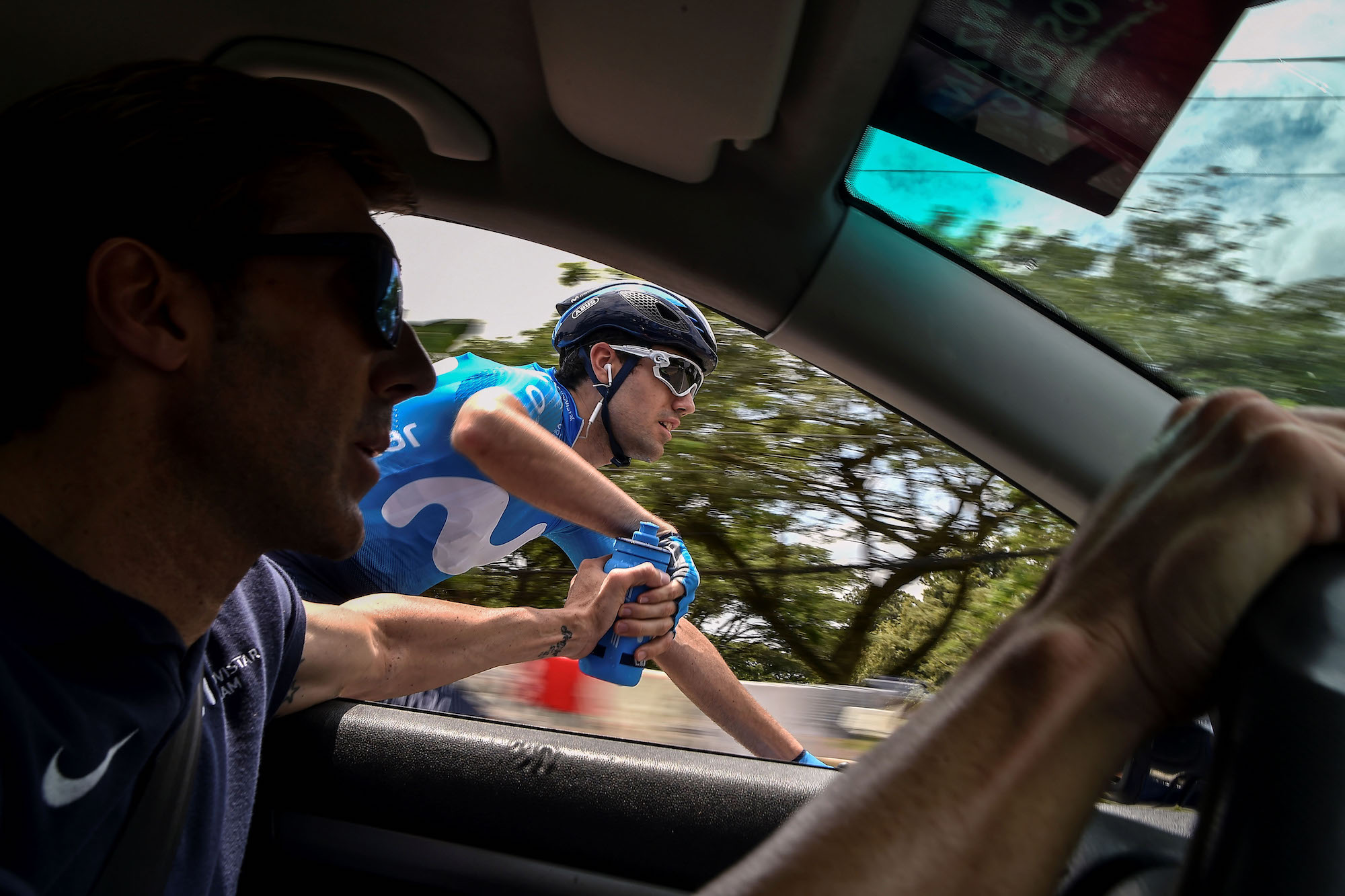
Two of cycling fans' favourite things to do are disparage Movistar for the seemingly hapless way in which they manage their team, while also moaning about how the likes of Ineos Grenadiers suck the life out of racing with their excessive control.
At the announcement that a second series would be aired, many would have thought that Movistar had finally lost the plot, as the behind-the-scenes viewing isn't as airbrushed as their footballing equivalents following the likes of Manchester City and Tottenham Hotspur. With 'The Least Expected Day', it's always warts and all.
We are treated to Hector Carretero having a complete hissy fit as he struggles to change his clothing on a horrible day at the Giro d'Italia, while at the end of that particular day Einer Rubio says: “We’re not paid for that. Well, Bala is, Mas, Soler...I appreciate you’re paid to get cold, but I’m not paid enough to get that cold.”
“We’ve got a summer team," retorts sports director Chente García Acosta, rolling his eyes at the camera.
While the first installment focused on the drama and power struggle between the team's various star riders, and the departures of Nairo Quintana, Mikel Landa and Richard Carapaz, the second depicts a very human story, the bloody murder of being part of a bike team when you're not winning, but somehow managing to look at life on the bright side and eventually laugh it off.
“I’ve seen it all, the twin towers, switching to the Euro, Covid-19, what Pereiro did [at the Tour de France in 2006],” is the line of the series from Chente.
After Soler's Vuelta stage win, we see him watching the replay not only in the car on the journey to the hotel but also on the massage table later that evening. It's an endearing view of the boy inside Soler, and not just the spoilt brat.
At the start of the season, we also hear about how the riders have been rude to the mechanics, and then at the end it's explained how some GoPro footage inside the team car is missing, the team having wiped it, after the riders in the Vuelta were rude to Arrieta, which was "the catalyst that then set Arri off".
In a sport where teams and riders look to take more and more control of their image, it's refreshing that Movistar show us how the meat is made, and they should be celebrated for doing so.
Superman arrives
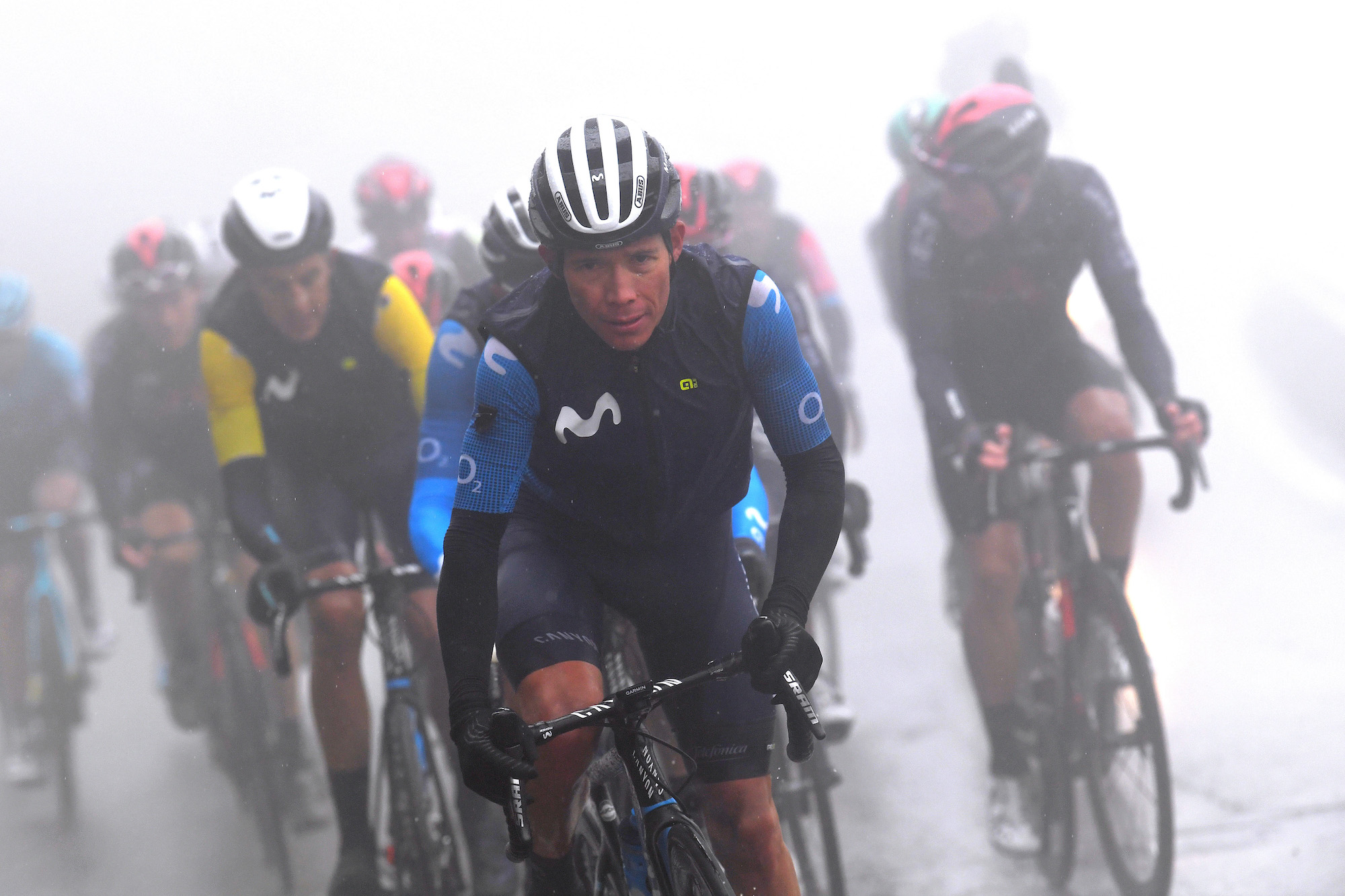
Like all good superheroes, Miguel Ángel López seems to have arrived just in the nick of time at Movistar.
López starts by saying Enric Mas is already annoyed at the prospect of having to work for the Colombian. What if you have to relay for him? Mas is asked. "I'll do it," comes the arms-crossed reply.
Lastras, the Roy Keane of cycling, seems to be relishing the prospect of going toe-to-toe with López. "He'll get pulled up," says the DS, who claims the Colombian has had too many yes men around him so far in his career.
López apologises once more for calling out the team and Valverde for their race tactics at the 2019 Vuelta, Imanol Erviti saying he still wants an explanation (an Erviti does not seem like a man to be trifled with), while Rojas promises him a PowerPoint for the first meeting (maybe it means something very different in Spanish).
"They hate each other! Crisis at Movistar! The Trident!" is one of the first quotes inside the team bus at the start of the series, the team falling about in laughter at the idea.
Really, it's just a shame we're going to have to wait another year for series three.
Jonny was Cycling Weekly's Weekend Editor until 2022.
I like writing offbeat features and eating too much bread when working out on the road at bike races.
Before joining Cycling Weekly I worked at The Tab and I've also written for Vice, Time Out, and worked freelance for The Telegraph (I know, but I needed the money at the time so let me live).
I also worked for ITV Cycling between 2011-2018 on their Tour de France and Vuelta a España coverage. Sometimes I'd be helping the producers make the programme and other times I'd be getting the lunches. Just in case you were wondering - Phil Liggett and Paul Sherwen had the same ham sandwich every day, it was great.